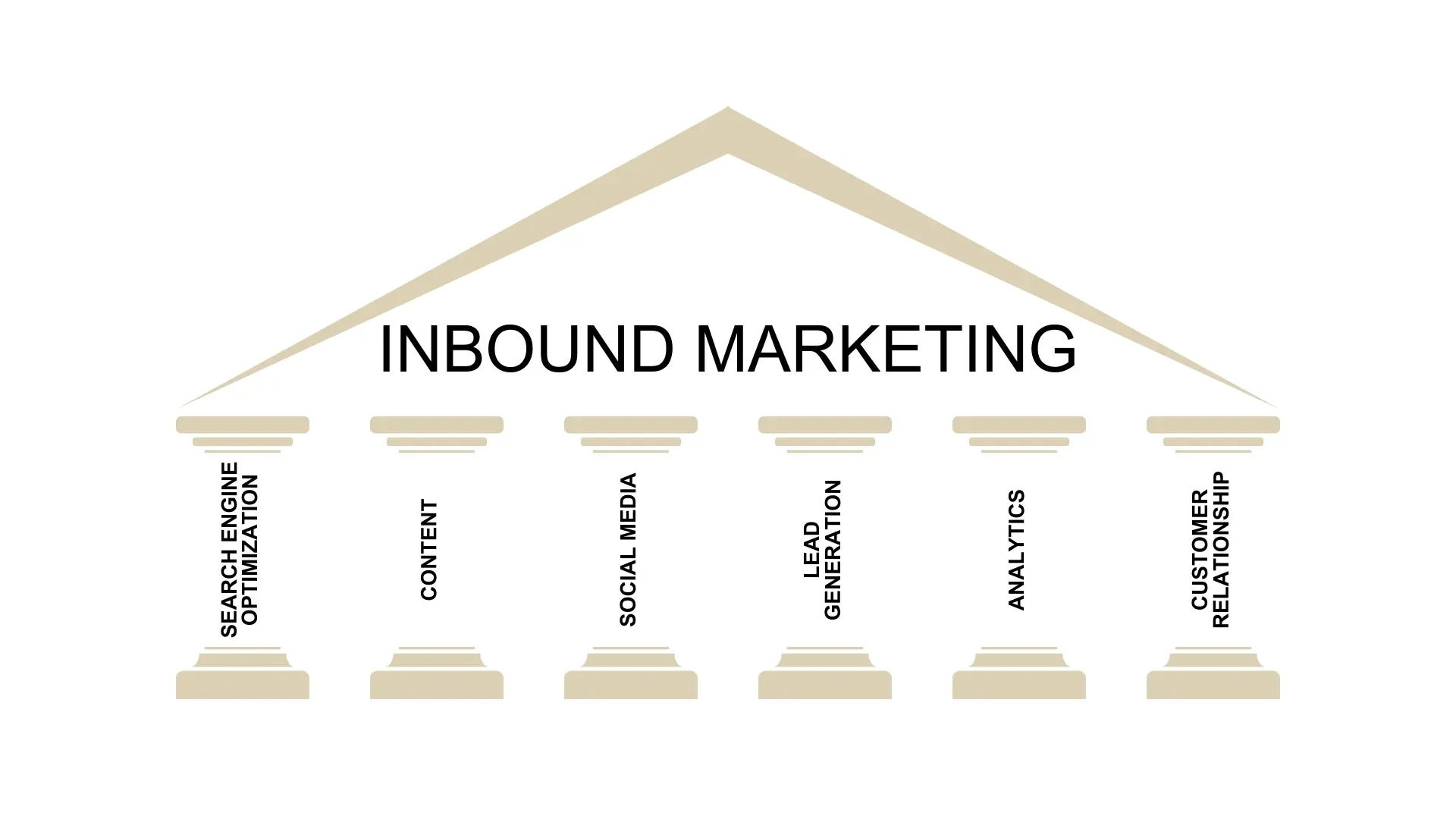
In today's digital landscape, where online visibility can make or break a business, mastering the intricacies of inbound marketing and SEO is paramount. According to recent studies, over 90% of online experiences begin with a search engine query. This statistic underscores the critical importance of optimizing your online presence to ensure your business is easily discoverable by potential customers. In this article, we'll delve into the symbiotic relationship between inbound marketing and SEO, exploring how these strategies intersect and complement each other to drive organic growth and maximize online visibility.
SEO, or search engine optimization, is a cornerstone of inbound marketing strategies. It encompasses a set of practices aimed at improving the visibility and discoverability of your content on search engine results pages (SERPs). In essence, SEO ensures that your website and its content are optimized to rank higher for specific search queries relevant to your business. By aligning your content with the needs and preferences of your target audience, SEO enhances your online presence and increases the likelihood of attracting qualified leads. In today's digital landscape, where consumers rely heavily on search engines to find products and services, mastering SEO is essential for driving organic traffic and fostering meaningful connections with your audience.
SEO is firmly entrenched within the domain of inbound marketing strategies. Unlike traditional outbound marketing approaches that involve pushing promotional messages onto an audience, SEO operates on the principle of attracting visitors organically.
SEO is about understanding what your audience is searching for and creating content that answers those queries. By focusing on keyword research and implementing those keywords naturally within your content, you align your website with the needs and interests of your target audience. This approach ensures that when potential customers search for information relevant to your industry, your website appears prominently in the search results.

The strength of SEO in inbound marketing lies in its ability to attract highly targeted traffic. Users who find your website through organic search are often already looking for the solutions or information you provide. This means they are more likely to engage with your content, stay longer on your site, and convert into leads or customers.
Additionally, search engines like Google prioritize high-quality, informative content that offers real value to users. By consistently producing such content, you not only improve your search engine rankings but also establish your brand as a trusted authority in your industry. This trust and authority can lead to increased brand loyalty and customer retention.
SEO also involves technical optimizations that enhance user experience, such as improving site speed, mobile responsiveness, and secure connections (HTTPS). These factors contribute to better search engine rankings and ensure that visitors have a positive experience on your site, which can lead to higher engagement and conversion rates.
In essence, SEO serves as a foundational pillar of inbound marketing, facilitating the creation of meaningful connections with potential customers by offering them valuable insights and solutions to their queries. By aligning SEO efforts with inbound marketing strategies, businesses can effectively attract, engage, and convert their target audience, driving long-term growth and success.

Inbound marketing practices play a crucial role in enhancing search engine ranking. By focusing on creating valuable content that resonates with your audience, you can significantly improve your visibility in search engine results. Here’s how inbound marketing can boost your search engine ranking:
Search engines prioritize websites that offer valuable, high-quality content. When you consistently produce content that addresses your audience’s needs, answers their questions, and solves their problems, search engines recognize your site as a reliable source of information. This can lead to higher rankings in search results.
Understanding and addressing the pain points of your target audience is essential. By creating content that directly speaks to their challenges and provides solutions, you not only engage your audience but also increase the time they spend on your site. This signals to search engines that your content is relevant and valuable, which can positively impact your rankings.
Inbound marketing involves thorough keyword research to identify the terms and phrases your audience is searching for. By incorporating these keywords naturally into your content, you improve your chances of ranking for those search queries. This includes using keywords in titles, headings, meta descriptions, and throughout the body of your content.
A positive user experience is a key factor in search engine ranking algorithms. Ensure your website is easy to navigate, mobile-friendly, and fast-loading. Providing a seamless user experience encourages visitors to stay longer and explore more pages, which reduces bounce rates and signals to search engines that your site is user-friendly.
Internal linking helps search engines understand the structure of your website and the relationship between different pages. It also keeps visitors engaged by guiding them to related content. Additionally, earning backlinks from reputable external websites boosts your site’s authority and credibility. Both internal and external links are essential for improving search engine rankings.
Social media engagement can amplify your content and increase its reach. When your content is shared, liked, and commented on, it generates social signals that can indirectly influence search engine rankings. Increased visibility on social media can drive more traffic to your website, further enhancing your search engine performance.
Keeping your content fresh and up-to-date is important for maintaining and improving search engine rankings. Regularly updating existing content with new information, statistics, and insights ensures that it remains relevant and valuable to your audience. Search engines favor websites that provide current and accurate information.
Regularly monitor your SEO performance using analytics tools to understand what’s working and what needs improvement. Analyze metrics such as organic traffic, keyword rankings, and user engagement to identify areas for optimization. Continuously refining your inbound marketing strategies based on data-driven insights helps maintain and enhance your search engine rankings.
Search engines, particularly Google, emphasize the importance of E-A-T (Expertise, Authoritativeness, Trustworthiness). Create content that showcases your expertise, builds your authority in your industry, and establishes trust with your audience. This involves providing well-researched, accurate information and demonstrating your credibility through credentials, testimonials, and reviews.
By implementing these inbound marketing practices, you can effectively enhance your search engine ranking. Creating valuable content, optimizing for relevant keywords, improving user experience, and engaging with your audience are all strategies that signal to search engines that your website is a valuable resource, leading to higher visibility and increased traffic.
Optimizing inbound marketing for SEO involves several strategic steps that ensure your content not only reaches but also resonates with your target audience. Here’s a detailed look at how to effectively optimize your inbound marketing efforts:
Start by understanding what your audience is searching for. Use tools like Google Keyword Planner, Ahrefs, or SEMrush to identify relevant keywords and phrases. Focus on both high-traffic keywords and long-tail keywords that are specific to your niche. These insights will guide your content creation process, ensuring that your material aligns with what potential customers are actively looking for.
Content is the backbone of inbound marketing. Produce content that is informative, valuable, and tailored to your audience’s needs. This includes blog posts, articles, videos, infographics, and other formats that engage and educate your audience. Ensure your content addresses common questions, solves problems, and provides insights that are useful to your readers.
Once you have your keywords, integrate them naturally into your content. Avoid keyword stuffing, which can harm your SEO performance. Instead, use keywords in titles, headings, meta descriptions, and throughout the body of your content in a way that feels organic and enhances readability.
Ensure all on-page SEO elements are optimized. This includes:
Social media platforms are powerful tools for amplifying your content. Share your content across relevant social media channels to increase its reach. Engage with your audience by responding to comments and participating in discussions. Social signals, such as likes, shares, and comments, can indirectly influence your SEO by driving traffic and increasing visibility.
Earn backlinks from reputable websites in your industry. Backlinks act as endorsements for your content, signaling to search engines that your site is credible and authoritative. Create shareable content, collaborate with influencers, and guest post on high-authority blogs to build a strong backlink profile.
Regularly track your SEO performance using tools like Google Analytics and Google Search Console. Analyze metrics such as organic traffic, bounce rate, conversion rate, and keyword rankings. Identify what’s working and what isn’t, and make data-driven decisions to improve your strategy.
SEO is constantly evolving. Stay informed about the latest SEO trends, algorithm updates, and best practices. This ensures your strategies remain effective and your content continues to rank well in search engine results.
By focusing on these elements, you can optimize your inbound marketing efforts to improve your search engine rankings, attract more qualified traffic, and ultimately drive more conversions for your business.
Understanding the dynamic interplay between inbound marketing and SEO is essential for businesses striving to thrive in the competitive online landscape. By recognizing the inseparable connection between these strategies and harnessing their combined power, businesses can significantly enhance their online visibility, attract qualified leads, and ultimately drive sustainable growth. From optimizing content to engaging with target audiences, the synergy between inbound marketing and SEO offers a pathway to success in the digital realm. Embracing these strategies and continually refining them to meet the evolving needs of online consumers will position businesses for long-term success in the digital age.
Schedule a call with a marketing expert today to get started on your next phase of business.
